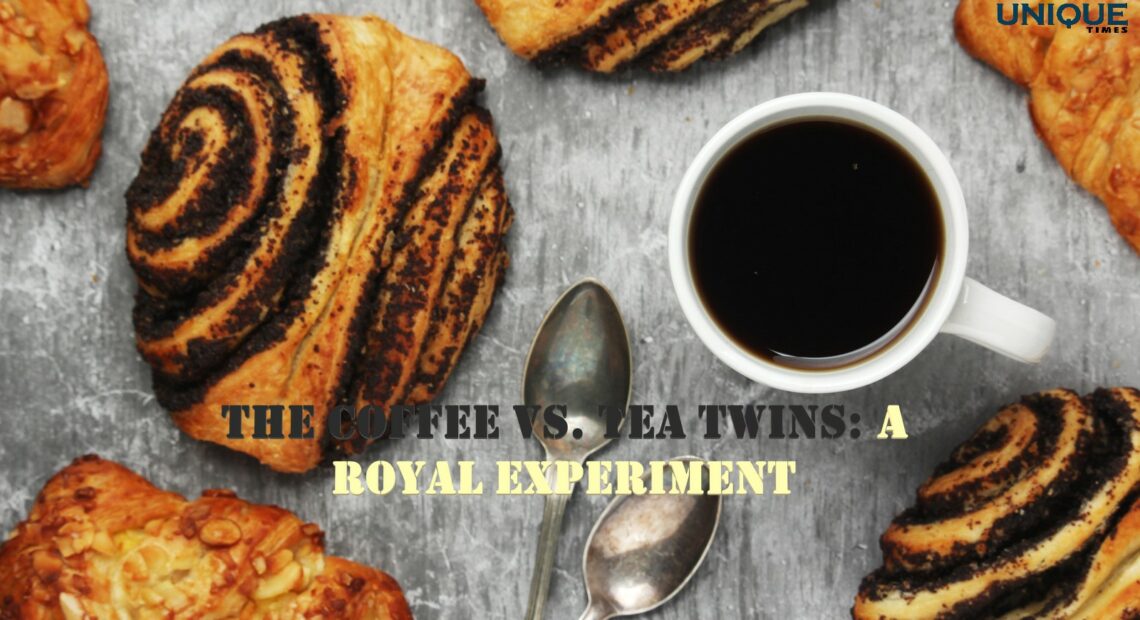History’s Curious Experiment: The Coffee vs. Tea Twins

History is dotted with intriguing tales of eccentric experiments, and one such remarkable story involves the Swedish King Gustav III’s peculiar fascination with the effects of coffee. In an extraordinary act, the King commuted the death sentences of a pair of twins and sentenced them to a life-long experiment—one to drink three pots of coffee daily, and the other to consume copious amounts of tea. Join us as we dive into this captivating narrative and explore the curious case of the “Coffee vs. Tea Twins.”
King Gustav III’s Curious Experiment
In the 18th century, King Gustav III of Sweden was known for his interests in science, medicine, and the arts. In his pursuit of knowledge, he sought to explore the alleged health benefits and potential harms associated with coffee consumption. During this period, coffee was a relatively new and exotic beverage in Europe, and its effects on human health were a subject of great intrigue and debate.
A Unique Twist of Fate: The Twins’ Pardon
Amidst the King’s inquisitive pursuits, he discovered a pair of twins, one of whom had been sentenced to death for murder. Intrigued by the idea of using them as subjects for his experiment, Gustav III intervened and pardoned the twins on the condition that they participate in the study. The twin who committed the murder was to drink three pots of coffee daily, while the other twin, equally condemned, was to consume an equivalent amount of tea.
The Experiment and Its Impact
The twins’ lives became a living laboratory, with their daily coffee and tea consumption meticulously monitored. As the years passed, physicians and researchers observed their health and documented any noticeable effects of their respective beverage consumption. However, the study’s scientific rigor was questionable, as many factors could have influenced the twins’ health beyond their coffee and tea habits.
Public Interest and Moral Dilemmas
The King’s experiment captured the public’s imagination, and discussions about coffee’s potential health effects proliferated throughout Sweden and beyond. Ethical concerns were raised about the twins’ treatment, questioning whether their lives had been improved or if they were subjected to an inhumane form of scientific curiosity.
Legacy and Historical Significance
While the specific outcomes of the experiment remain uncertain, it sparked significant interest in the study of coffee’s effects and added to the growing body of knowledge about the beverage. Today, we know that moderate coffee and tea consumption can have various health benefits, including antioxidants and potential protective effects against certain diseases.
Conclusion
The tale of the “Coffee vs. Tea Twins” stands as a fascinating historical anecdote, highlighting the enigmatic allure of scientific exploration in the past. King Gustav III’s experiment, although questionable in its ethical implications, undoubtedly contributed to the broader understanding of coffee’s potential effects on health. As we continue to delve into the mysteries of food and beverages, history serves as a reminder of the importance of conducting research with ethical considerations and a genuine pursuit of knowledge. So, the next time you savor your morning coffee or sip on a soothing cup of tea, remember that these beloved beverages have an enduring place in both history and science.
Picture Courtesy: Google/images are subject to copyright








